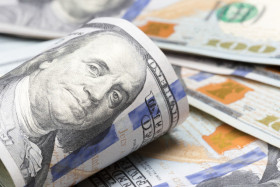The US dollar is sliding against many of its most traded currency rivals midweek after the US central bank left its key interest rates unchanged. The greenback has been steadily declining since the market meltdown in March, and analysts are warning that the buck could fall even further amid inflation fears. With the Federal Reserve maintaining its dovish stance, how much more could the dollar drop?
On Wednesday, the Federal Open Market Committee (FOMC) voted to leave its benchmark rate in the range of 0% and 0.25% as part of overall efforts to support the economic recovery. The FOMC noted that keeping rates near zero for longer is critical since growth is âwell belowâ pre-pandemic levels.
Central bank officials also promised to keep its suite of bond purchases, lending and liquidity programs, and other measures to ensure the US economy can be revived in the post-coronavirus world. In addition, dollar liquidity swaps and temporary repo operations will be extended until March 31, 2021. The purpose of these measures is to ensure US dollars travel through the broader global financial markets and international central banks.
These mechanisms will remain intact until the central bank is âconfident that the economy has weathered recent events and is on track to achieve its maximum employment and price stability goals.â
The Fed said in its statement:
Following sharp declines, economic activity and employment have picked up somewhat in recent months but remain well below their levels at the beginning of the year. Weaker demand and significantly lower oil prices are holding down consumer price inflation. Overall financial conditions have improved in recent months, in part reflecting policy measures to support the economy and the flow of credit to US households and businesses.
Ultimately, according to the central bank, the course of the economy will depend on COVID-19.
Financial markets barely reacted to the news, possibly because the decision was widely expected. Wall Street is, however, penciling in subzero interest rates sometime next year, according to the fed fund futures.
The US Dollar Index, which gauges the greenback against a basket of currencies, maintained its losses in the middle of the trading week. The index tumbled 0.35% to 93.37, from an opening of 93.75. The index reached a peak of 103.00 in April, but it has since slumped 6%, bringing its year-to-date decline to 3%.
The Treasury market pared its gains after the Fed policy update. The benchmark 10-year note rose 0.6 basis points to 0.579%, while the 30-year bond added 2.2 basis points to 1.246%.
The USD/CAD currency pair fell 0.21% to 1.3352, from an opening of 1.3379, at 18:15 GMT on Wednesday. The EUR/USD advanced 0.67% to 1.1795, from an opening of 1.1719.
If you have any questions, comments, or opinions regarding the US Dollar, feel free to post them using the commentary form below.



Be First to Comment